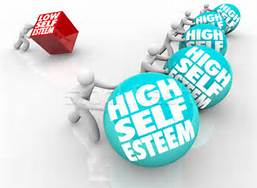 Is Asking How to Improve Your Self Esteem Even Important?
Is Asking How to Improve Your Self Esteem Even Important?
Self-esteem may not seem that important to some (they're probably feeling fine about themselves) but it has a huge impact on your daily life. It has an effect on your moods, your reactions and how people treat you. So it is important to ask how to improve your self-esteem.
Seek learning on how to get past negative emotions like anger, jealousy and blame and not let them overshadow your thinking.
Everyone experiences small episodes of these harmful emotions but if you let them be your whole focus, you will never be happy and everyone you meet will know it.
In addition, these emotions build up and create harmful physical conditions like heart disease and high blood pressure. Make sure you laugh every day. Watch a comedy show to lift your mood. You can’t possibly feel hopeless or angry if you are laughing.
Following are more ways how to improve your self-esteem:
- Increase your self-esteem by doing nice things for other people. They don’t even need to know you did it. In fact, it might is better if they don’t. It will make you feel very good about yourself though, and that is what is important.
- Stop criticizing every little mistake you make. Watch the words you say about yourself. No more "stupid" or "dummy". Everyone makes mistakes.
- Take all those negative things you are thinking about yourself and turn them into positive thoughts and your self-esteem will be on the rise one little step at a time.
- Learn to choose how you respond to whatever situation you may find yourself in. You can decide to calmly handle a situation with as little stress and bad feelings as possible or you can freak out yell, scream, cry and make a bad situation worse.
- And if your emotional residue from the past is so large it doesn't feel like you have a choice, seek help – self-help, coaching or therapy. Whatever suits you.
- Another way to make yourself feel better and give your self-esteem a little boost is to dress up now and then for no reason. It will make you feel good knowing that you look good. Do not allow yourself any criticisms about how you look, only good thoughts.
- If you up for a real stretch, ask 3 people what they like about you. Let what they say about you wash over you. Let it in and just say, "Thank you".
The next time you ask how to improve your self-esteem, think back to this list and get to work.
YOU University Coaching/Life Coach Training and Life Coaching
YOU University Coaching/Life Coach Training and Life Coaching













